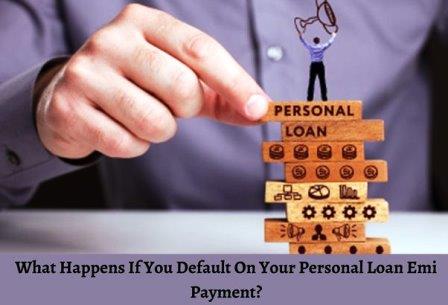Unsecured loans offer quick access to cash but come with the risk of severe consequences if neglected. This blog dives into what happens if you don’t pay an unsecured loan and explores your options for managing the situation.
What Is An Unsecured Loan?
Unlike secured loans backed by collateral (like a car), unsecured loans rely solely on your creditworthiness. Common examples include personal loans, student loans, and credit cards. Since there’s no asset to seize in case of default, unsecured loans typically have higher interest rates.
What Happens If I Default on An Unsecured Loan?
Missing payments triggers a series of events:
- Credit Score Hit: Late payments are reported to credit bureaus, plummeting your score and hindering your ability to secure future loans at favorable rates.
- Late Fees and Penalties: Missed payments incur additional charges like late fees and penalties, increasing your overall debt burden.
- Debt Collection Calls: Persistent delinquency leads to the debt being outsourced to collection agencies known for aggressive tactics.
- Lawsuit and Wage Garnishment: In severe cases, lenders may sue you, and a court judgment can lead to wage garnishment, where a portion of your paycheck is automatically deducted to repay the debt.
- Lien on Assets: Though unsecured, a court judgment can result in a lien being placed on your assets, restricting your ability to sell or refinance them without settling the debt.
Beyond the Financial Impact
The repercussions extend beyond finances. The stress of dealing with debt collectors, potential lawsuits, and the fear of losing assets can take a significant toll on your mental and emotional well-being.
What Are My Options After the Default?
Don’t panic! Here’s what you can do:
- Communicate With Your Lender: The earlier you reach out, the better. Explain your situation and explore options like hardship programs that might offer temporary relief.
- Explore Debt Consolidation: Consider consolidating your unsecured debts into a single loan with a lower interest rate, simplifying your repayment process and potentially saving money.
- Create a Budget: Develop a realistic budget to identify areas where you can cut back and free up funds for loan repayment.
- Seek Credit Counseling: Non-profit credit counseling agencies can offer valuable guidance and support in managing your debt. They can help you create a repayment plan, negotiate with lenders, and explore debt management options.
Using a New Loan to Pay It Off (Proceed with Caution)
Consolidating with a new loan offering a lower interest rate can be an option, but be sure the terms are favorable and you can comfortably afford the payments. This strategy should be carefully considered with the help of a financial advisor to avoid getting trapped in a deeper debt cycle.
Getting Relief Through Bankruptcy (Last Resort)
Bankruptcy is a legal process designed to provide relief from overwhelming debt. There are two main types for individuals:
- Chapter 7 Bankruptcy: This involves liquidating some assets to repay creditors a portion of the debt. While it offers a fresh start, it remains on your credit report for 10 years, making it difficult to secure loans or rent an apartment during that period.
- Chapter 13 Bankruptcy: This option creates a court-ordered repayment plan lasting 3-5 years. During this period, you make monthly payments to a court-appointed trustee who distributes the funds to your creditors. Chapter 13 allows you to keep your assets but requires meeting income eligibility.
Important Note: Filing for bankruptcy is a serious decision with lasting repercussions. Consult with a qualified bankruptcy attorney to understand the implications and determine if it’s the right course of action for your specific situation.
Conclusion
Unsecured loans can be a valuable tool, but neglecting the consequences of non-payment can lead to financial hardship. By understanding the potential issues and taking proactive steps, you can manage the situation and work towards a solution. Remember, financial difficulties are common. Don’t hesitate to seek help and take charge of your financial situation. With the right approach, you can overcome these challenges and achieve financial stability.
